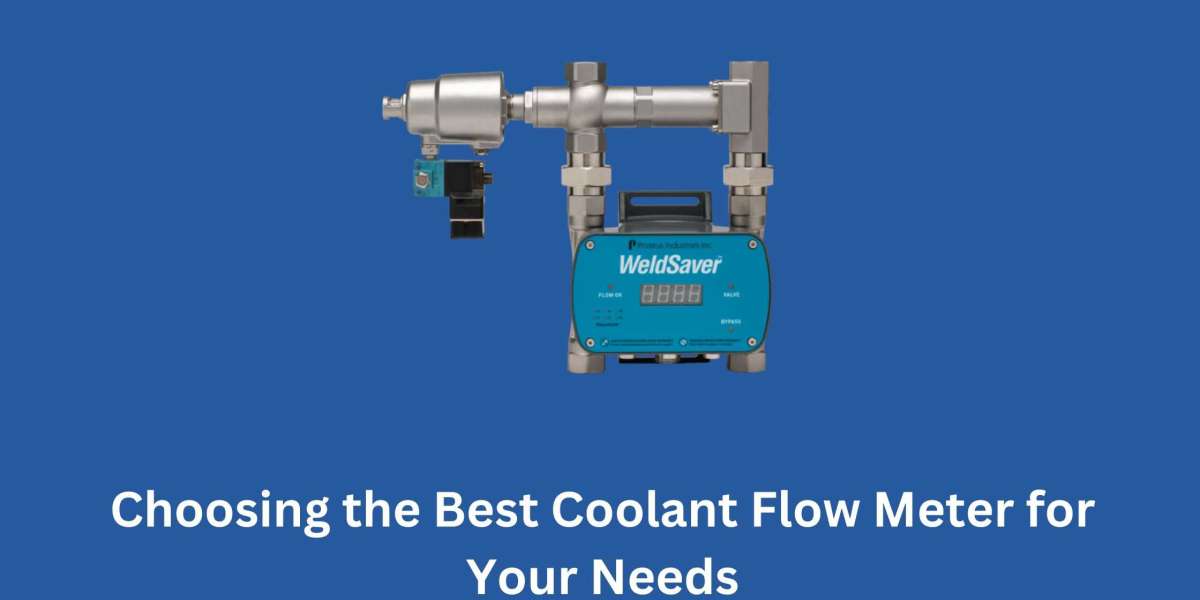Managing coolant flow is essential for ensuring machinery's longevity and optimal performance in industries like automotive, manufacturing, or even HVAC. A coolant flow meter is one of the most effective tools. This vital instrument measures the rate at which coolant flows through systems, ensuring that temperatures remain regulated and that machinery operates smoothly. This guide will explore the importance of coolant flow meters, how they work, the types available, and how to choose the best one for your needs.
What Is a Coolant Flow Meter?
A coolant flow meter is an essential device used to measure the flow rate of coolant within a system. This tool ensures that the correct amount of coolant circulates through engines, cooling systems, or manufacturing processes, helping prevent overheating and wear. Accurately measuring coolant flow is crucial, especially in high-performance systems with critical heat management.
Coolants, such as water mixed with antifreeze, are critical in absorbing heat from machines, engines, and other systems. However, if the flow is too slow or fast, it can cause inefficient cooling, leading to operational failure, increased maintenance costs, or reduced equipment lifespan. Therefore, the role of a coolant flow meter is not just about measurement but also about safeguarding the efficiency and longevity of the systems.
The Importance of Choosing the Right Coolant Flow Meter
The accuracy of coolant flow measurement impacts a system's overall performance. Choosing the proper flow meter can lead to accurate readings, which may result in system malfunctions. An appropriate flow of coolant meter helps ensure that machines and engines are running at an optimal temperature. It is also an essential part of preventive maintenance because it allows for the early detection of issues, such as coolant leaks or insufficient coolant flow before they escalate.
Key Considerations When Choosing a Coolant Flow Meter
Selecting the proper coolant flow meter involves considering various factors that can impact performance. Here are some important considerations to keep in mind:
- Flow Range
The flow range is one of the most critical factors in choosing a coolant flow meter. You need to ensure that the flow meter can accurately estimate the flow rates within the range required by your system. If the flow rate is too low or too high for the meter, it can lead to inaccurate readings and possible system inefficiencies.
- Compatibility with the Coolant
Different coolants may have different chemical properties, such as viscosity or corrosiveness. Selecting a coolant flow meter that is compatible with the type of coolant used in your system is essential. This ensures the meter doesn’t degrade or malfunction due to the fluid's chemical properties.
- Temperature and Pressure Conditions
Some systems operate in extreme temperatures or high-pressure environments. In such cases, you’ll need a coolant flow meter to withstand these conditions without compromising performance. Always check the meter’s temperature and pressure specifications before making a purchase.
- Accuracy and Precision
The flow meter's accuracy is essential, especially for systems where precision is key. A high-accuracy coolant flow meter ensures that coolant is flowing at the correct rate, preventing overheating or inefficient cooling that could cause damage to the system.
- Ease of Installation and Maintenance
Installation can be a critical factor depending on the application. Some flow meters are easier to install and maintain than others. If your system is complex or requires frequent maintenance, choose a coolant flow meter that is easy to access, clean, and replace when necessary.
Conclusion
Choosing the best coolant flow meter for your needs is a crucial decision that requires careful reflection of several factors, including the flow range, compatibility with coolants, and your system's operating conditions. Whether you need a mechanical, electronic, vortex, or ultrasonic meter, selecting the right one ensures that your equipment runs efficiently and avoids costly damage from overheating. Considering the key considerations in this guide, you can make an advised choice that best meets your specific requirements.
FAQs About Coolant Flow Meters
- What is a coolant flow meter used for?
A coolant flow meter measures the flow rate of coolant within a system, ensuring optimal cooling performance and preventing machinery and engine overheating.
- What types of flow meters are best for high-temperature systems?
Vortex and ultrasonic flow meters are often the best choice for high-temperature systems because they can withstand extreme conditions while providing accurate readings.
- Can a coolant flow meter be used for all types of coolants?
Not all flow meters are compatible with every type of coolant. It is essential to select a flow meter designed to work with your coolant's specific properties, such as its viscosity and chemical composition.
- How do I know if my coolant flow meter is accurate?
To ensure accuracy, always check the specifications of the coolant flow meter you are considering. Many high-quality meters have built-in calibration features or can be tested against known standards.
- What are the advantages of electronic flow meters over mechanical ones?
Electronic flow meters are more precise and offer advanced features such as digital displays, alarms, and integration with automated systems, making them ideal for complex and high-precision applications.








